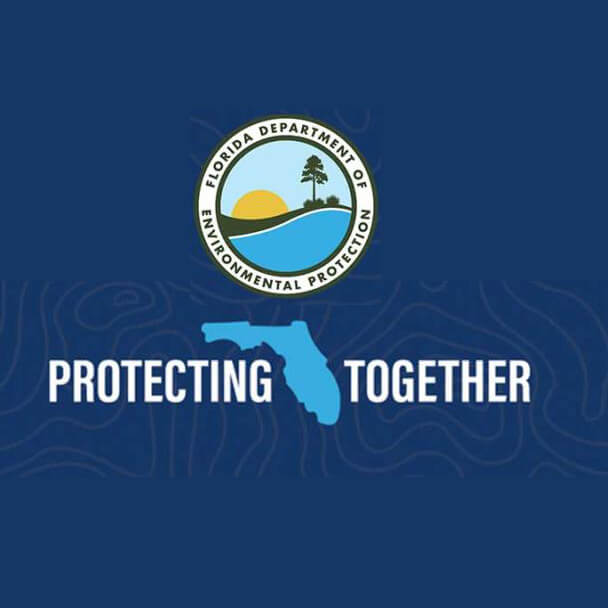The Importance of Water Testing in Florida
Water, a fundamental resource for life, agriculture, and industry, is of paramount importance in Florida. The quality of the water that flows through our taps, irrigates our crops, and sustains our ecosystems directly impacts public health and the environment. This article explores the critical role of water testing in Florida, shedding light on why regular and comprehensive testing is essential for ensuring the safety and reliability of our water supply.
1. Ensuring Drinking Water Safety
One of the primary reasons for water testing in Florida is to ensure the safety of the drinking water supply. Regular testing of public water systems is mandated by state and federal regulations to detect and monitor the levels of contaminants. Parameters such as bacteria, heavy metals, and chemical pollutants are meticulously analyzed to ensure compliance with established safety standards.
Waterborne pathogens, including bacteria like E. coli, can pose severe health risks if present in drinking water. Rigorous testing protocols are in place to identify and address any potential contamination promptly. Continuous monitoring and adherence to strict water quality standards safeguard public health, preventing waterborne diseases and ensuring that Floridians can trust the water flowing from their taps.
2. Protecting Aquatic Ecosystems
Florida's diverse aquatic ecosystems, from freshwater springs to coastal estuaries, are home to a rich array of flora and fauna. Water testing plays a crucial role in protecting these ecosystems from the adverse effects of pollution. Nutrient levels, specifically nitrogen and phosphorus, are monitored to prevent excessive nutrient loading that can lead to harmful algal blooms (HABs).
HABs can have detrimental impacts on aquatic life, depleting oxygen levels and causing fish kills. Additionally, some algae produce toxins that can be harmful to both marine life and humans. Water testing helps detect and manage nutrient levels, preventing the occurrence of HABs and preserving the health and biodiversity of Florida's aquatic environments.
3. Supporting Agriculture and Irrigation
Agriculture is a cornerstone of Florida's economy, and water testing is indispensable for ensuring the quality of water used for irrigation. High levels of salts, minerals, or contaminants in irrigation water can negatively affect soil health and crop yields. By regularly testing water used in agriculture, farmers can make informed decisions about water management practices and optimize crop production.
Testing also helps identify potential sources of contamination, such as agricultural runoff, ensuring that best management practices are implemented to protect both water quality and the long-term sustainability of Florida's agricultural industry.
4. Managing Stormwater and Runoff
Florida's tropical climate makes it susceptible to heavy rainfall and storms, leading to increased stormwater runoff. This runoff can carry pollutants such as sediments, nutrients, and chemicals into water bodies, affecting water quality. Water testing is vital for monitoring and managing stormwater runoff to prevent contamination and protect water resources.
Through the analysis of stormwater samples, authorities can identify potential pollutants and implement effective stormwater management strategies. This proactive approach helps mitigate the environmental impact of stormwater runoff and ensures that Florida's water bodies remain clean and resilient.
5. Detecting Emerging Contaminants
As scientific knowledge evolves, so does the understanding of potential contaminants in water. Emerging contaminants, including pharmaceuticals, personal care products, and industrial chemicals, are of growing concern worldwide. Water testing in Florida includes ongoing research and monitoring for these emerging contaminants to assess their presence and potential impact.
Advanced analytical techniques, such as liquid chromatography-mass spectrometry (LC-MS) and gas chromatography-mass spectrometry (GC-MS), are employed to detect trace levels of emerging contaminants. This proactive approach enables regulatory agencies to establish guidelines and regulations to address these evolving challenges and protect water quality.
6. Ensuring Compliance with Regulations
Florida's water quality is regulated by a framework of state and federal laws that set standards for various contaminants. Water testing is essential for ensuring compliance with these regulations. Public water systems, industrial facilities, and agricultural operations are required to conduct regular testing and report the results to regulatory authorities.
Non-compliance with water quality standards can result in regulatory action, including fines and restrictions on water use. Rigorous testing and adherence to regulations are integral to maintaining the integrity of Florida's water supply and upholding environmental standards.
7. Preserving Groundwater Quality
Groundwater is a critical source of drinking water in Florida, and its quality must be carefully monitored to prevent contamination. Water testing of groundwater wells is essential for assessing factors such as nitrate levels, microbial contamination, and the presence of volatile organic compounds (VOCs).
By regularly testing groundwater, authorities can identify potential sources of contamination, implement remediation measures, and ensure the sustainability of this vital water source. Groundwater protection is a key component of Florida's water management strategies, and testing plays a central role in preserving this valuable resource.
Conclusion
Water testing in Florida is not just a regulatory requirement; it is a fundamental practice that safeguards public health, preserves ecosystems, and sustains vital industries. The comprehensive analysis of water quality parameters ensures that Floridians can trust the water they consume, while also contributing to the long-term health of the state's environment.
As Florida continues to face challenges related to population growth, climate change, and evolving contaminants, the importance of water testing will only intensify. Ongoing advancements in testing technologies and continued commitment to regulatory standards will play a crucial role in ensuring that Florida's water remains safe, reliable, and resilient for generations to come.





